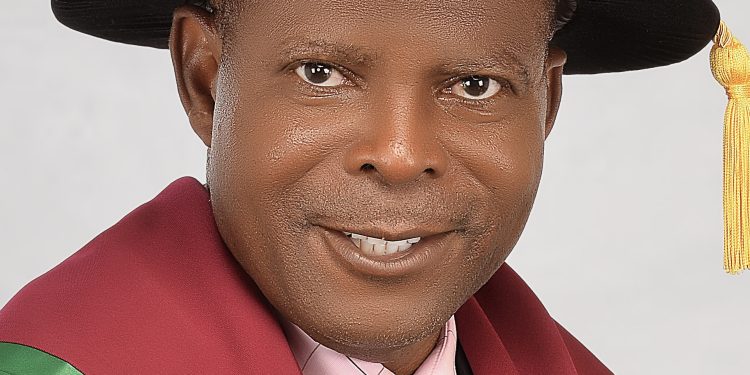By Elizabeth Atte
An economic expert, Professor Gbenga Omofa, Head of the Department of Economics at the Federal University, Lokoja, has advocated for the creation of a National Economic Coordinating Council (NECC) as a strategic solution to Nigeria’s ongoing economic challenges.
Professor Omofa made this recommendation while speaking on Financial Monitor, a Voice of Nigeria (VON) programme that examines the activities of the Central Bank of Nigeria and explores ways to stimulate economic growth.
During the programme, he emphasized that the council should be tasked with the responsibility of harmonizing macroeconomic and fiscal solutions to address Nigeria’s economic headwinds.
Professor Omofa stressed that persistent inflation, exchange rate volatility, rising unemployment, and sluggish inclusive growth are symptoms of a deeper structural problem. “We need a National Economic Coordinating Council similar to those in the United States and the United Kingdom. It would be responsible for ensuring consistency between monetary and fiscal strategies, eliminating contradictions, and promoting macroeconomic stability,” Omofa stated.
Citing simulation studies, he revealed that while monetary or fiscal policies may appear effective in isolation, their impact weakens when implemented without coordination. This, he explained, is the root cause of Nigeria’s paradox of “growth without employment” and persistent inflationary pressures, despite aggressive interest rate policies.
“It’s not just about the monetary policy. The monetary policy must be consistent with fiscal policy. If, for example, the monetary policy rate is increased in an attempt to reduce money supply in the system, but there is no fiscal discipline on the part of the government, perhaps the government is increasing expenditure and running a deficit, the effectiveness of the monetary policy will be undermined. That is why coordination between fiscal and monetary policies is crucial.”
Omofa also criticized the over-reliance on interest rate hikes to curb inflation, noting that such strategies can unintentionally raise production costs and suppress output in the real sector.
“Inflation has been the main focus of monetary policy. For quite some time now, interest rates have remained in double digits. When interest rates rise, borrowing costs increase. This can stifle access to credit. Moreover, higher borrowing costs translate to increased production costs. Producers, in turn, pass these costs on to consumers by raising prices, which can fuel inflation rather than curtail it.”
He further urged that all economic policies be data-driven, emphasizing the importance of accurate and up-to-date statistics in designing effective interventions.
“Statistics do not lie. We are in an era of database-driven research, and both fiscal and monetary policies must be grounded in reliable data,” he said.
His recommendations come at a time when Nigeria is grappling with a high Monetary Policy Rate (MPR) of 27.50%, a fluctuating exchange rate, rising food inflation, and a widening budget deficit.
He hinted that further discussions and solutions to Nigeria’s economic challenges will be presented at his upcoming inaugural lecture titled “Financial Sector Development and Macroeconomic Performance in Nigeria: An Uneasy Marriage Between the Monetary and the Fiscal,” scheduled for 25th June 2025 at the Federal University, Lokoja.
Professor Omofa emphasized that the event will provide an evidence-based analysis and offer a policy roadmap for achieving sustainable economic growth and improved welfare for Nigerians.
















